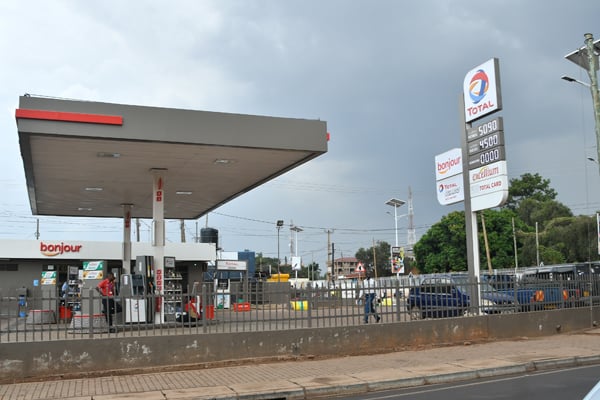Kenya yet to receive Uganda’s request to increase fuel quota

Uganda’s fuel prices have been rising since December. Photo | Edgar R Batte
What you need to know:
- In a phone interview yesterday, Kenya’s Energy Principal Secretary Andrew Kamau, told Daily Monitor that he had not received the letter, noting he would respond as and when he receives it.
Kenya has said that whereas it has not yet received the letter in which Uganda requests for an increase in allocated monthly petroleum import quotas, the process requires consultations that might take some time before a decision is taken.
In a phone interview yesterday, Kenya’s Energy Principal Secretary Andrew Kamau, told Daily Monitor that he had not received the letter, noting he would respond as and when he receives it.
“I have not received any letter in regard to that [increase of allocated monthly petroleum import quotas]. When I get it, I will respond to it. If I have not got it, I don’t know anything,” he said without giving more details.
Earlier, Mr John Mwaura, the Energy and Petroleum Ministry public communications officer, had told Daily Monitor that whereas they had not received the letter such a process might take some time because it involves consultations with a number of stakeholders.
“You see, protocol demands that communication between two governments go through the respective foreign affairs ministries. Remember, today is April 21, the letter is dated April 11 and we had Easter holidays. As such, the letter may still be in the pipeline. In any case, a decision on [such a] request would require consultations, which takes time,” he said, in response to our inquiries on when the Kenyan government would be handling the matter.
On Wednesday, Energy Ministry Permanent Secretary Pauline Irene Batebe, had indicated that Kenya was yet to respond to her April 11 letter in which she had sought the country’s intervention by increasing monthly petroleum import quotas allocated Uganda in a bid to ease shortages that have seen fuel price increase by almost 40 per cent in just three months. It was not immediately clear how fast Uganda expects Kenya to handle the matter given the threat that the runaway fuel prices present to the larger economy.
ALSO READ: Why fuel prices are still high
Calls and text messages to known phone numbers of Ministry of Energy Communications Director Patricia Litho on whether Uganda had set timelines in regard to a response to the matter went unanswered by press time.
In an April 11 letter Ms Batebe had asked her counterpart in Kenya – Ms Kamau - to increase fixed allocation of 110,660 cubic metres of petrol and 110,400 cubic metres of diesel transported through Kenya to deal with fresh demand, partly driven by reopening of the economy. Ms Ms Batebe also indicated that Uganda wants a guarantee of a monthly provision of 12,000 cubic metres of aviation fuel.
Her letter had been written following a meeting with oil marketers in Uganda, who had linked the fuel supply crisis facing Uganda to inadequate allocations from Kenya.
“During the time, we experienced Covid-19 restrictions in 2020 and beginning of 2021, there was a reduction in demand for petroleum products and when businesses returned to normal in the fourth quarter of 2021, Ugandan oil marketing companies have continued experiencing inadequate ullage which has caused gaps in fulfilling demand requirements and therefore resulted in persistent supply problems in Uganda,” Ms Batebe wrote.
Uganda also wants oil marketing firms to continue being supplied under the open tender system through their sister companies in Kenya as well as allowing oil marketers to load from Nairobi and other terminals in view of the low capacity in western Kenya.
Rising fuel prices
In March, Uganda National Bureau of Statistics said fuel had increased by about 36 percent since December due in part to a crisis in December and January resulting from a strike by truck drivers and a disruption in supply.
Government had also blamed the runaway fuel prices on the current conflict between Russia and Ukraine.
DON'T MISS: Passengers to pay more for same route
However, experts have previously argued that the conflict was too distant to cause such an instant impact on local pump prices.
Kenya, is itself fighting off a fuel crisis, which its government blames on hoarding by oil marketing firms but has since eased with the country assuring citizens on adequate supplies.




